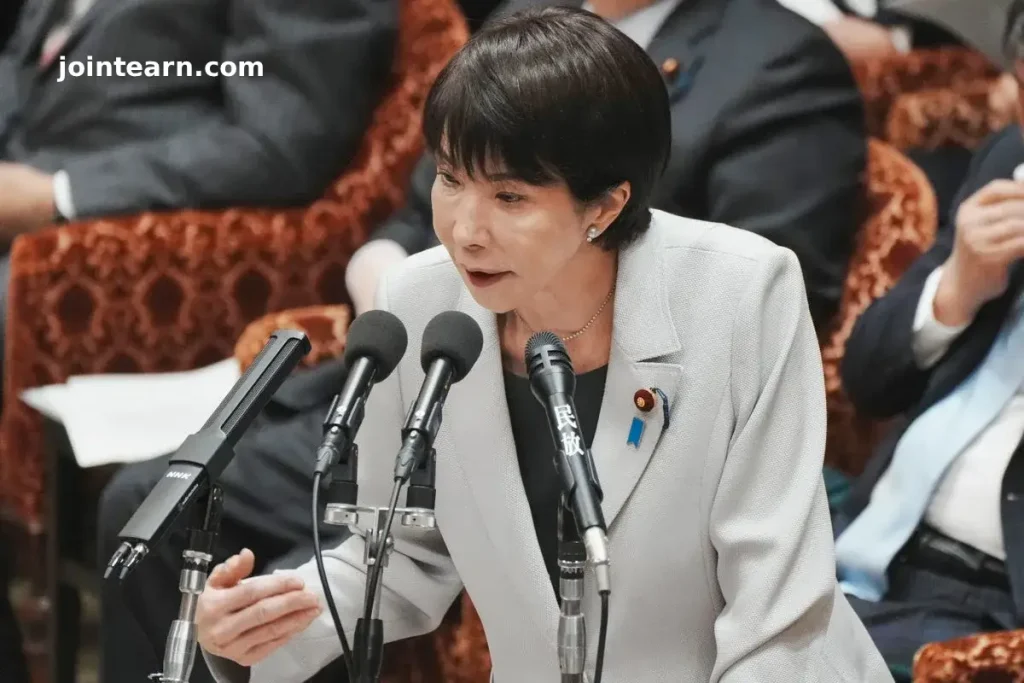
Tokyo, Japan — November 12, 2025: Japan’s new prime minister Sanae Takaichi has ignited a serious diplomatic row with China after suggesting that Japan’s Self-Defence Forces (SDF) could intervene if a Chinese attack on Taiwan threatened Japan’s national security.
Her remarks — made during a parliamentary session last week — marked a dramatic shift from Tokyo’s decades-old policy of strategic ambiguity toward Taiwan, a stance carefully designed to deter conflict without directly provoking Beijing.
A Sharp Break From Japan’s Cautious Taiwan Policy
During the session, Prime Minister Takaichi said that if a Taiwan contingency involved “warships and the use of force,” it could “constitute a situation threatening Japan’s survival.”
“The so-called Taiwan contingency has become so serious that we have to anticipate a worst-case scenario,” Takaichi said, invoking Japan’s 2015 security legislation that allows limited collective self-defense in coordination with allies such as the United States.
Her comments implied that Japan could legally deploy its military in response to a Taiwan crisis if Tokyo believed the country’s security was at stake.
Beijing’s Outrage and Threatening Response
China reacted furiously, denouncing Takaichi’s remarks as “egregious interference” in its internal affairs.
Xue Jian, the Chinese consul general in Osaka, posted on X (formerly Twitter) that “the dirty head that sticks itself in must be cut off” — a comment widely interpreted as a direct threat toward Japan’s leadership.
Following Tokyo’s formal protest, the post was swiftly deleted, but tensions continued to escalate. Japan’s Chief Cabinet Secretary Minoru Kihara condemned the message as “highly inappropriate,” while U.S. Ambassador George Glass accused Beijing of intimidation, stating that “the mask slips again” and warning that the remarks “threatened Japan’s prime minister and its people.”
Takaichi Refuses to Back Down
Despite Beijing’s protests, Prime Minister Takaichi refused to retract her statement, maintaining that her position was consistent with Japan’s official policy.
“I gave a somewhat concrete answer while considering the worst-case scenario,” she told reporters Monday. “From now on, I will refrain from making explicit statements on specific scenarios.”
She emphasized that she had “no intention” of changing Japan’s approach toward regional security, even while acknowledging the need for caution in public remarks.
Taiwan and the Geopolitical Domino Effect
Beijing views Taiwan as a breakaway province that must eventually reunify with the mainland — by force if necessary. Since Taiwanese President William Lai Ching-te took office, China has intensified its military pressure around the island with regular air and naval incursions.
While most countries, including the United States, do not officially recognize Taiwan as a sovereign nation, Washington remains its most important backer, pledging to help the island defend itself against any Chinese aggression.
Japan, meanwhile, has long walked a diplomatic tightrope — balancing its security alliance with the U.S. against its deep economic ties with China.
A Hawkish Turn in Japanese Politics
Analysts say Takaichi’s comments underscore a more assertive and hawkish stance in Japanese politics under her leadership. The prime minister, a protégé of former leader Shinzo Abe, appears intent on continuing Abe’s vision of a stronger, more proactive Japan that can defend its interests in the Indo-Pacific.
Her approach has rekindled long-simmering historical and geopolitical tensions between Tokyo and Beijing — rooted in World War II animosity and modern-day rivalry over regional influence and maritime security.
Beijing’s Continued Condemnation
China’s Foreign Ministry accused Japan of “gross interference in China’s internal affairs,” reiterating that “Taiwan is China’s Taiwan.”
“We will not tolerate any foreign interference,” ministry spokesperson Lin Jian declared. “What signal is Japan’s leader trying to send to separatist forces in Taiwan? Is Japan challenging China’s core interests?”
The confrontation follows Beijing’s earlier outrage over Takaichi’s brief meeting with a senior Taiwanese adviser during the APEC Summit in South Korea, which China said violated its One-China policy.
A Region on Edge
The diplomatic clash comes as tensions rise across the Asia-Pacific, where China’s military assertiveness, North Korea’s missile launches, and disputes in the South China Sea are testing regional stability.
Experts warn that even rhetorical escalation over Taiwan could raise the risk of miscalculation between the world’s three major powers — China, Japan, and the United States.
For now, Prime Minister Takaichi’s strong words have signaled that Japan is no longer content to stay silent on Taiwan — a stance that could reshape the regional balance for years to come.


Leave a Reply